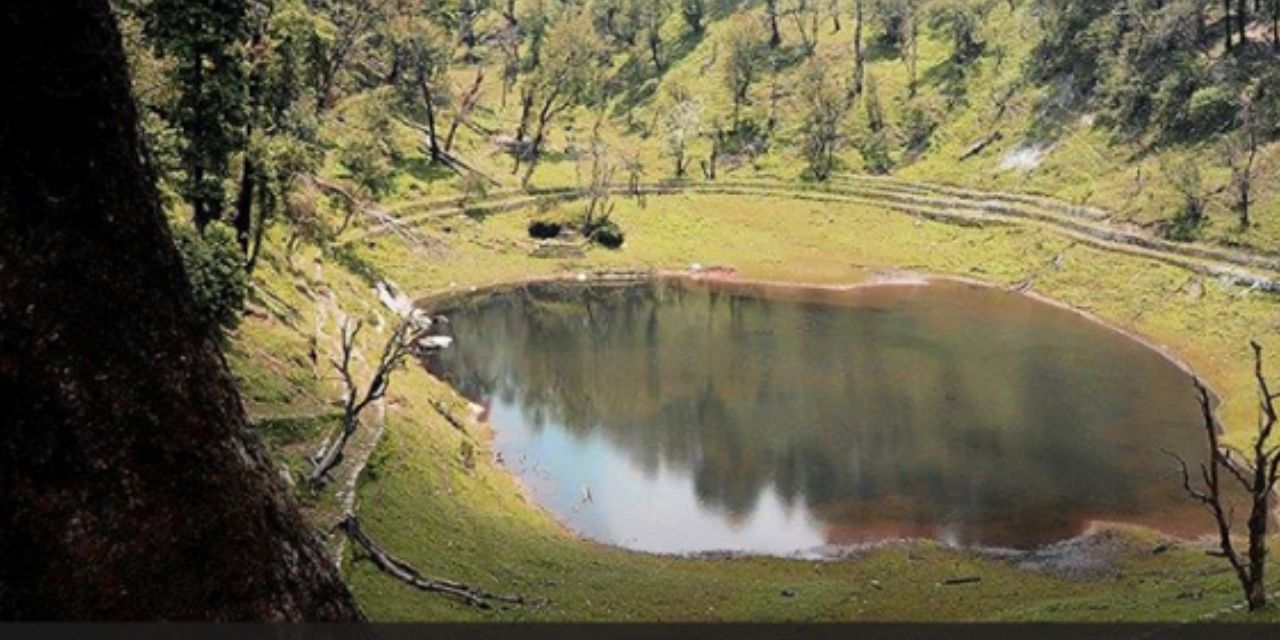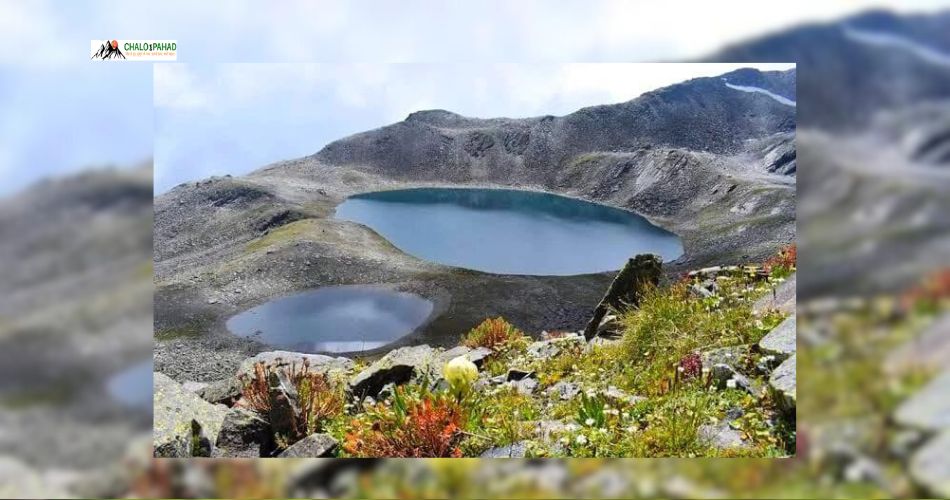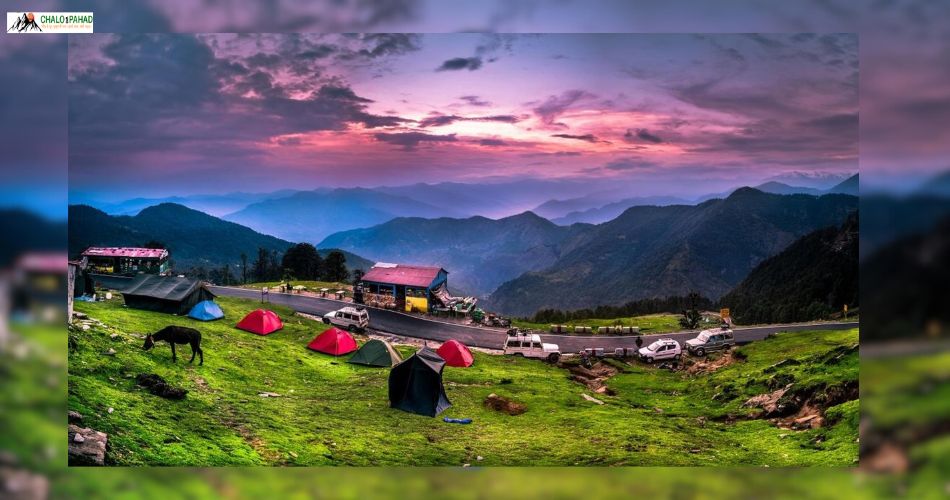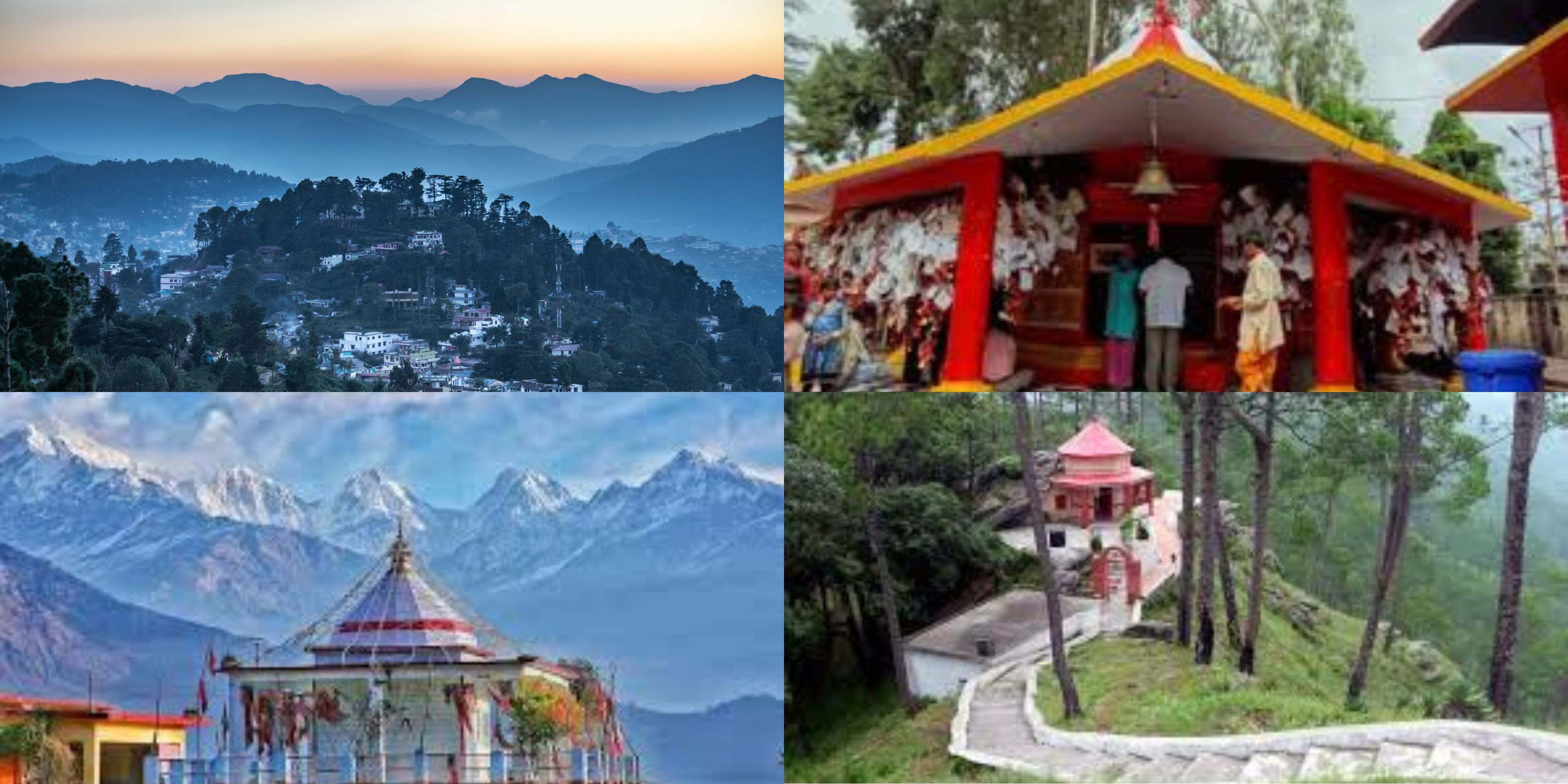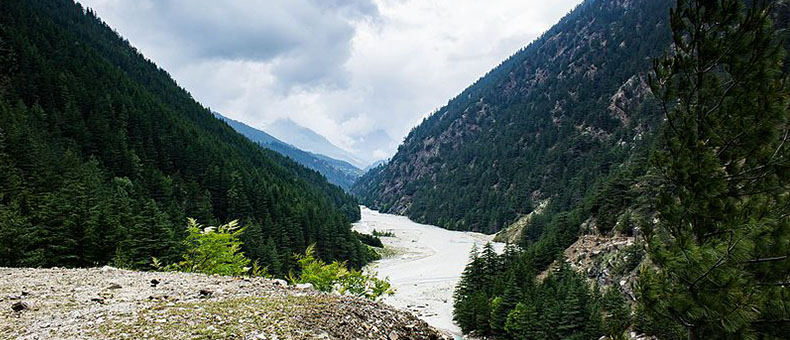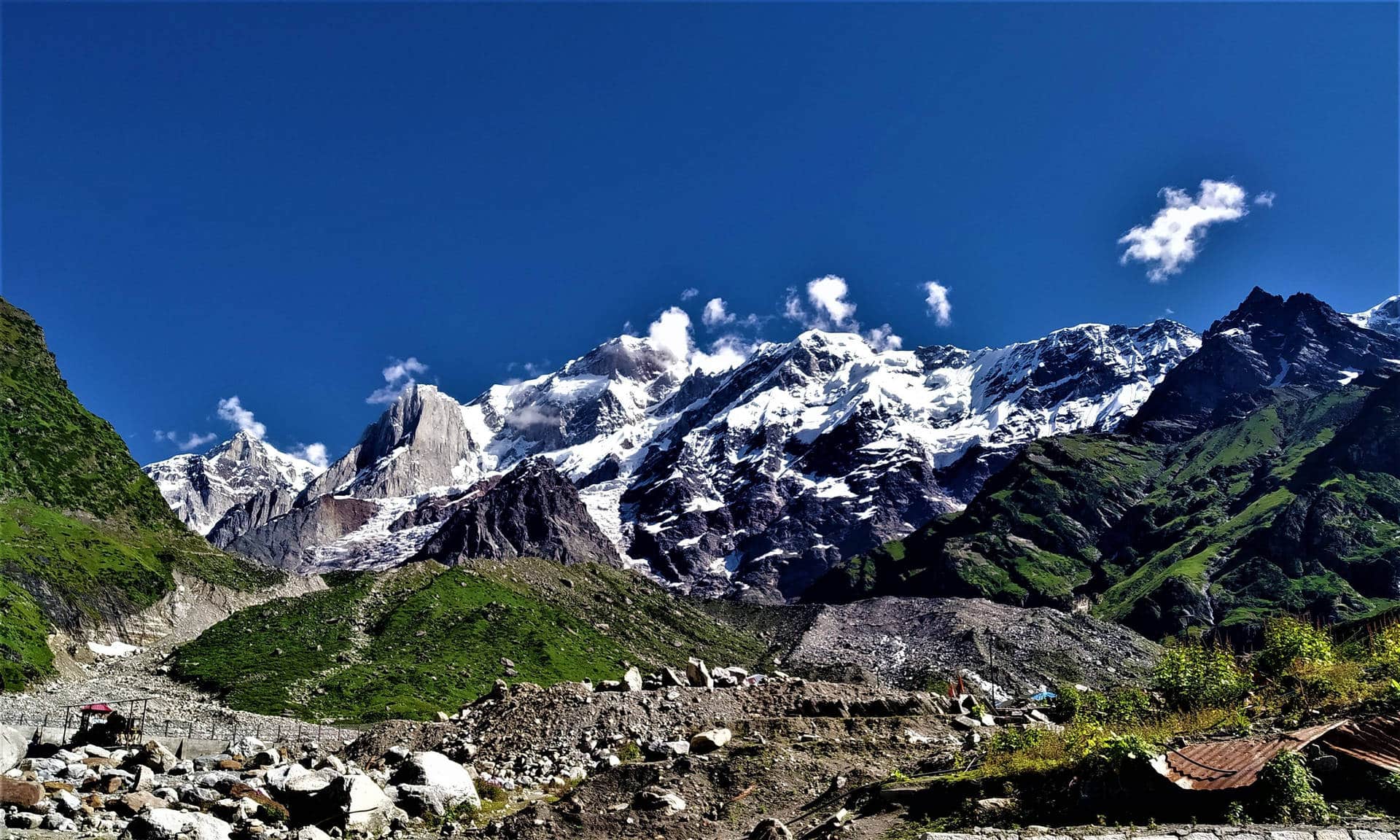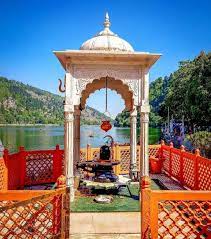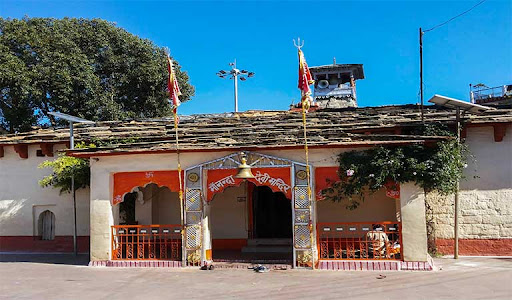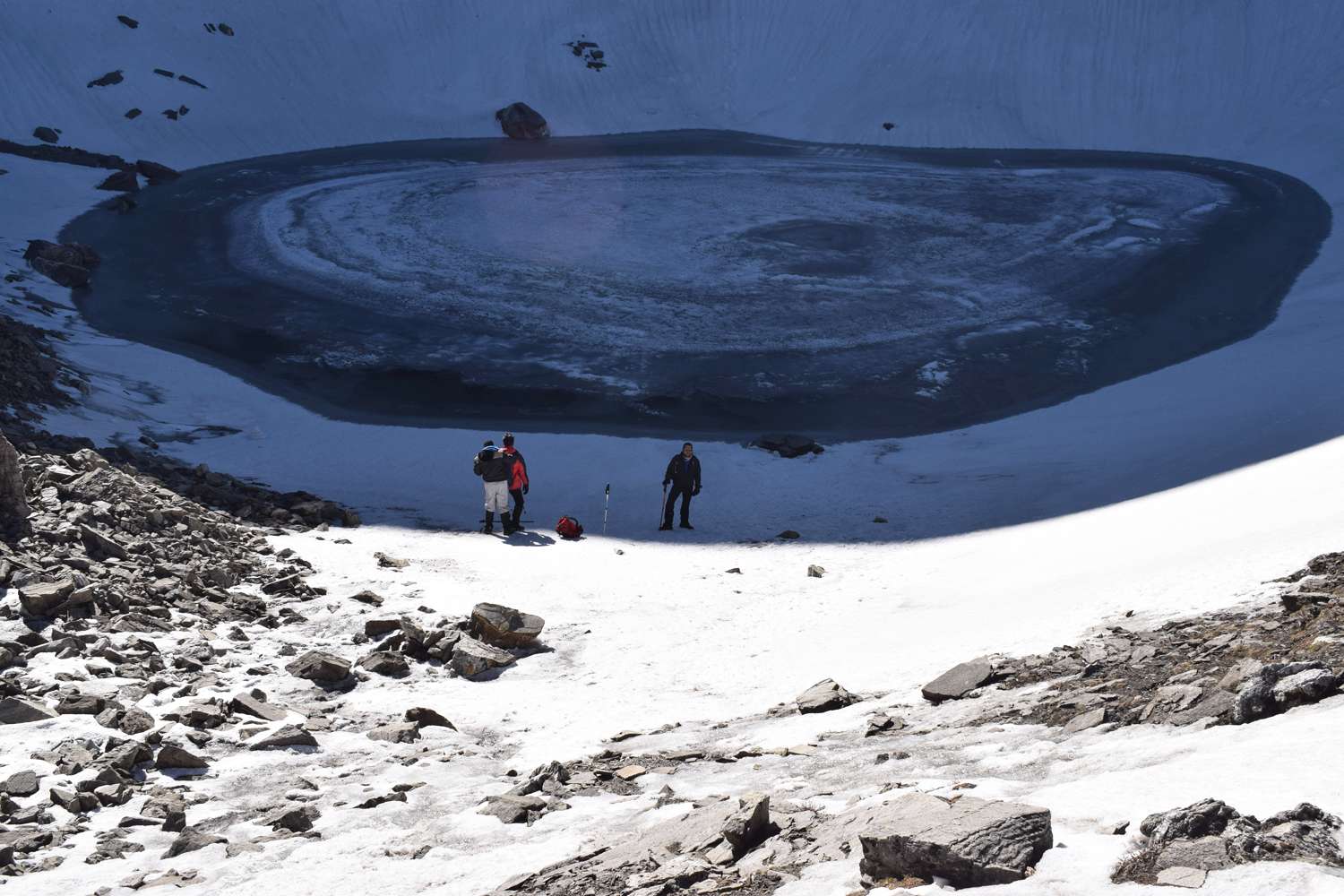If you spend enough time inside the mountains, you realise no longer does every treasure come with a signboard. Munsiyari has its glaciers and famous peaks that draw crowds, but tucked a short stroll away is Maheshwari Kund (महेश्वरी कुंड). Small, quiet, sometimes not noted. Yet those who stop here end up carrying it back in memory.
The Walk
The trail begins right outside Munsiyari. The sound of people fades quickly hammer on a rooftop, children calling out, the clang of tin vessels. Then the forest swallows you. Oaks (बलूत) lean tall, their branches tangled. Pines (चीड़) release a sharp, clean smell that feels like medicine in the air. And while the season turns, the pink of rhododendron (बुरांश) bursts across the timber, petals falling like scattered fire.
The stroll isn’t lengthy, maybe 40-five minutes at maximum. But it slows you down. Villagers skip now and again, carrying timber, herding goats. Each greets with a nod or a smile. By the time you attain the open meadow, the silence has already started to do its painting.
And there it's far the kund. Flat, nevertheless, water. Trees circling it like guards. Panchachuli peaks (पंचाचूली पर्वत) are distant, white, and steady, watching over the entirety.
The Story That Stays
No one here tells stories like tourists do. They speak as if the events just happened yesterday. By the pond, I heard the Yaksha (यक्ष) tale again. He lived in this water, they said, and loved the Sarpanch’s daughter. When denied, he cursed the land. Crops failed, and the earth cracked. It was only after deep apologies that the curse was lifted and water returned.
The villagers still repeat it, not for drama, but like a reminder: pride can wound, forgiveness heals. And when you sit by the pond, you almost believe the water itself remembers.
What Silence Can Teach
The magic of Maheshwari Kund is its quiet. You sit, and at first, your head buzzes with thoughts. Slowly, the mind empties. Then, the small details return. A fish breaking the surface with a quick ripple. The sharp cry of a kite circling above. Cowbells faint in the distance. The breeze carrying the faint sweetness of बुरांश.
One woman told me, “यह कुंड मन को हल्का कर देता है” (this pond makes the mind lighter). I could not disagree.
Seasons of the Pond
This pond wears many faces. In summer, it glows with green meadows around it. Autumn sprinkles it with gold leaves. Winter sharpens it, frost crawling along the edges. Spring paints it with rhododendrons, red flowers floating like offerings on the water. Each visit feels like meeting a different mood of the same soul.
When Villagers Gather
On Budh Purnima, the quiet pond transforms. The fair called Mesar Wan Koutik (मेसर वाण कौतिक) takes place. People gather in bright clothes, music rises, and dancing continues late into the night. It is not organized for tourists. It is for the community, for the land, for the stories passed down. And the pond sits there, reflecting lamps and laughter, as if pleased.
If You Plan to Go
The walk is easy, but don’t take it lightly. Trails can be slick in monsoon, and leeches (जोंक) love the wet months. Salt in the pocket is old advice here. Winters demand layers, not bravado. Best times: March to June or September to November.
There are no shops or hotels by the pond. Carry पानी (water), maybe some fruit. This is not a place of amenities it is a place of pause.
Why It Matters
Tourists rush for glaciers, peaks, and long treks. Fair enough, they are worth it. But Maheshwari Kund gives something different. It doesn’t ask for effort or endurance. It asks only that you sit, and in return, it gives you back a piece of quiet.
When I left, I turned once more. The pond hadn’t moved, hadn’t changed. But I had. I whispered “धन्यवाद” (thank you), and the breeze carried it across the still water. It felt enough.

